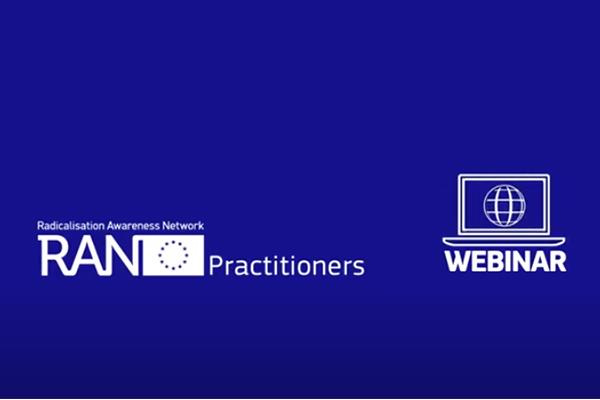
15 February 2024, 9:30 – 12:30 CET, Webex meeting, in English
We are delighted to bring to your attention the RAN Practitioners training webinar on Managing polarisation in the classroom that will take place on 15 February from 9:30 to 12:30 CET. RAN Staff members will share main lessons learned from the Youth & Education Working Group and train the participants to adequately act and react in a polarised class context. The target audience of this webinar comprises teachers or other practitioners who work with young people aged 12-18 in a classroom setting.
You can register through this link.
Aim and background
Every once in a while, there are events that spark heavy emotions in society. Public debate can get increasingly heated, sides get chosen, and this polarisation might also reflect in the classroom. For teachers, this polarisation can be quite overwhelming when heavy engagement in a topic negatively affects class cohesion or the learning process. Escalating and negative polarisation could lead some students to become more frustrated and extreme in their convictions. Polarisation can manifest ‘horizontally’ across groups of classmates, or ‘vertically’ against ‘the authority’, for instance the teacher and the school. Currently the conflict between Israel and Palestine seems to be the main topic leading to polarisation in classrooms. Polarisation in classrooms has also circled around COVID-19 measures, gender and sexuality, climate change, religion, or ‘identity politics’ and ‘culture clashes’.
In the RAN Youth & Education Working Group, practitioners shared their experiences, challenges, and insights concerning polarisation in the classroom. Throughout these meetings, practitioners discussed how to foster and maintain a positive and constructive pedagogical environment around young people and thus contribute to P/CVE. Meetings also explored how to turn challenging situations into teachable opportunities. Lessons learned from these meetings have been documented in these conclusion papers and overview papers. We will provide you with a selection of the most relevant resources in the weeks before the training webinar.
This training webinar will build upon these lessons learned in the RAN Youth & Education Working Group. We will gather a small group of teachers and other practitioners (15 participants) to train them in dealing with polarised situations in the classroom and offer them the opportunity to learn from each other. We will train the participants in applying Brandsma’s depolarisation model on a polarised group dynamic, and how to act in an adequate way when confronted with various forms of polarising statements.
Set-up
The first part of the training will be an overview of lessons learned from RAN Y&E and an introduction to common approaches. The second part of the webinar will involve training on ‘depolarisation’ and on how to get the extremes to find common ground. The third part will involve training on categorising different polarising statements and the adequate ways to act upon these respective categories.
Practical
- If you would like to attend this webinar, please register via this link. Please, use the same email address that you will use to log into the event.
- After registration, we will carry out the selection process. We will let you know if you have been selected no later than 2 February.
- We will send you some relevant documents well before the meeting that we expect you to read through in preparation of this training webinar.
- Because of the interactive nature of this training webinar and the limited number of participants, we expect active participation.
Please note that we can only invite a limited number of participants to this meeting to ensure valuable exchanges and interaction, so participation is not guaranteed.
If you have any further questions, please don't hesitate to contact b [dot] broeders radaradvies [dot] nl (Boy Broeders), c [dot] binnendijk
radaradvies [dot] nl (Boy Broeders), c [dot] binnendijk radaradvies [dot] nl (Carlijn Binnendijk) or s [dot] lenos
radaradvies [dot] nl (Carlijn Binnendijk) or s [dot] lenos radaradvies [dot] nl (Steven Lenos).
radaradvies [dot] nl (Steven Lenos).
Sources
Details
- Publication date
- 17 January 2024
- Author
- Directorate-General for Migration and Home Affairs
